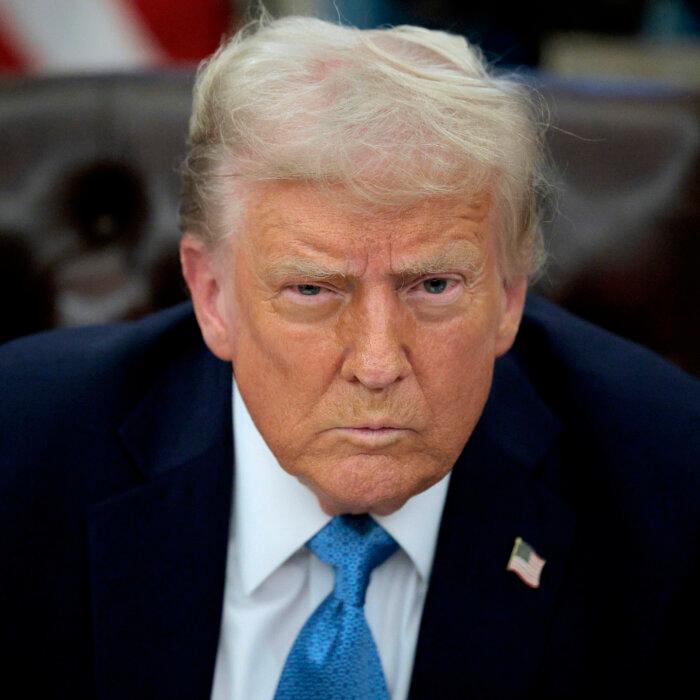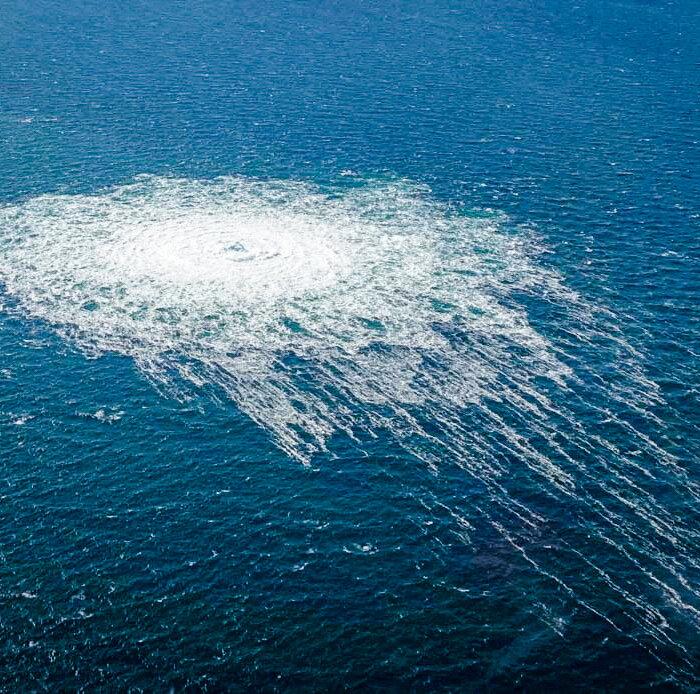Sir Keir Starmer was in Brussels on Feb. 3 to meet European Union leaders en masse, in a first for a British prime minister since Brexit.
On his trip, Starmer will also meet with NATO Secretary General Mark Rutte as well as the leaders from the 27 EU member states, where he will urge them to up the pressure on Russian President Vladimir Putin.
The British leader said that U.S. President Donald Trump’s suggestion that he would add new tariffs to his sanctions threat against Moscow if there was no deal to end the war in Ukraine had “rattled” Putin.
“We need to see all allies stepping up—particularly in Europe,” he continued. “I’m here to work with our European partners on keeping up the pressure, targeting the energy revenues and the companies supplying his missile factories, to crush Putin’s war machine.”
Since taking power in July, Starmer has looked to “reset” ties with the EU in the wake of years of Brexit talks.
EU leaders, Starmer, and Rutte will gather at Egmont Palace, a royal residence-turned-conference center in the Belgian capital.
Topics up for discussion include bolstering the continent’s defenses and how to handle the new administration in Washington after Trump’s decision to impose tariffs on goods from Canada, Mexico, and China, and his threat to impose something similar against the bloc.
President of the European Council of EU leaders Antonio Costa has billed the one-day meeting as the “Informal EU Leaders Retreat 2025” rather than a formal summit.
The first session will focus on geopolitics and relations with the United States, meaning Trump’s weekend move on tariffs will almost certainly be raised.
The new U.S. president will also be a major factor in the talks on defense, as his administration has demanded European nations spend much more on their own protection and rely less on American military largesse.
The EU leaders are also expected to discuss what military capabilities they will require going forward, how to fund them and how they might cooperate on achieving those goals.
“Europe needs to assume greater responsibility for its own defense,” Costa said in a letter to the leaders. “It needs to become more resilient, more efficient, more autonomous, and a more reliable security and defense actor.”
The funding discussion will be particularly challenging, as many member states have public finances that are already stretched to the limit.
Some, such as the Baltic states and France, advocate joint EU borrowing to spend on defense, but the Germans and the Dutch vociferously reject that notion.
European countries have ramped up their defense spending in recent years, but many EU leaders have said they will need to spend even more.
Trump has said NATO’s European members should spend 5 percent of GDP on defense—a figure no member of the alliance currently achieves.
That is a 30 percent increase from 2021, according to the EU. But it also masks wide divergences among EU countries.
Poland and the Baltics are among the biggest defense spenders in terms of GDP, with Warsaw topping the table at more than 4.1 percent, according to NATO estimates.
But some of the EU’s biggest economies such as Italy and Spain spend much less—about 1.5 percent and 1.3 percent respectively.
Britain spends 2.3 percent of GDP on defense but says it will increase it to 2.5 percent.







